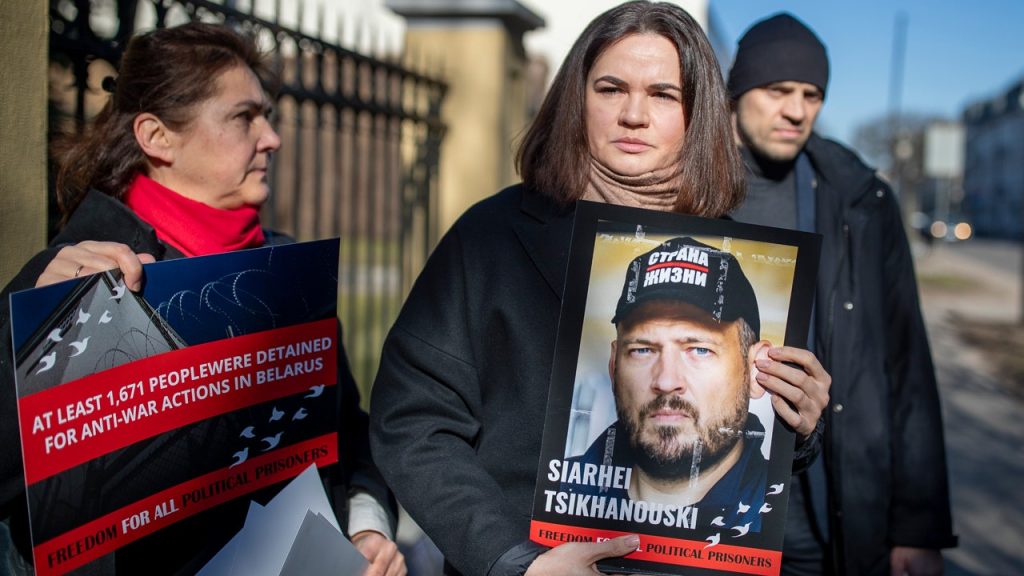Belarus’ exiled opposition leader, Sviatlana Tsikhanouskaya, revealed that she has not heard from her imprisoned husband, Siarhei Tsikhanouski, in 421 days. Siarhei Tsikhanouski was arrested in 2020 after announcing plans to challenge authoritarian President Alexander Lukashenko in that year’s election. Despite being forced to leave the country after the election, Tsikhanouskaya continues to advocate for her husband’s release. Siarhei Tsikhanouski has been sentenced to 19 ½ years, and Tsikhanouskaya expressed concern about his well-being due to the lack of communication, which she sees as a tactic to isolate and forget about him. Several other top opposition figures have also been held incommunicado for over a year, further highlighting the repressive nature of the Belarusian regime.
The August 2020 election that secured Lukashenko’s sixth term in office was widely condemned as fraudulent, leading to widespread protests. In response, the authorities launched a harsh crackdown, resulting in thousands of arrests and brutal treatment of protesters. Many prominent opposition figures were targeted, with some given lengthy prison sentences and others forced to flee the country. The United Nations’ requests for information about the opposition activists being held incommunicado have been disregarded by Belarusian authorities, indicating a lack of transparency and accountability.
Belarus’ leading human rights group, Viasna, has identified approximately 1,400 political prisoners in the country, including Nobel Peace Prize laureate Ales Bialiatski. Representative Pavel Sapelka described holding opposition activists incommunicado as a form of torture, not only for the prisoners themselves but also for their families. This practice is seen as a deliberate strategy to punish political opponents and conceal evidence of mistreatment and torture. The lack of communication with imprisoned individuals not only isolates them but also prevents their families from knowing about their well-being and whereabouts.
Tsikhanouskaya emphasized the importance of raising awareness about the plight of the imprisoned activists and providing support in any way possible. She called on the international community to speak out against the repressive actions of the Belarusian government and to stand in solidarity with those who are being unjustly detained. By amplifying these voices and advocating for their rights, Tsikhanouskaya hopes to pressure the authorities to release the political prisoners and end the systematic repression of dissent in the country. The ongoing crackdown on opposition figures and activists underscores the need for continued international attention and pressure on the Belarusian government to respect human rights and uphold the rule of law.
The Belarusian regime’s tight control over religious groups has further restricted freedoms in the country, as evidenced by the targeting of opposition figures and the suppression of dissenting voices. The government’s efforts to silence political opponents, both within Belarus and in exile, highlight the challenges faced by those advocating for democracy and human rights in the country. Despite facing significant obstacles, Tsikhanouskaya and other activists remain committed to their cause and continue to call for justice, accountability, and freedom for all those unjustly detained. The international community plays a crucial role in supporting these efforts and holding the Belarusian government accountable for its repressive actions against political dissent and opposition movements.













